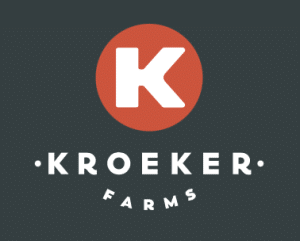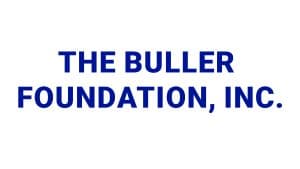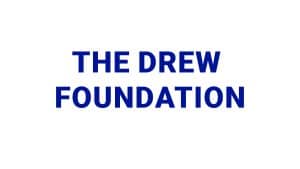Addiction disorder can affect anyone. Millions of Canadians partake in addictive behaviours like gambling and shopping, which can have a negative effect on a person’s life. But drug and alcohol abuse aren’t the only forms addiction can take.
Behavioural addictions are becoming increasingly common, with an estimated 21% of Canada’s population experiencing an addiction within their lifetime. Luckily, these addictions aren’t permanent. With the right help, it’s possible to treat behavioural addictions and eliminate cravings.
Here’s what you need to know about behavioural addictions, including the many types and treatment methods.
What Is a Behavioural Addiction?
Behavioural addiction is a dependence on specific behaviours that negatively affect the addicted person. These addictions can severely impact a person’s relationships, career and self-esteem and may become debilitating.
People who suffer from behavioural addictions often neglect social and personal obligations in favour of engaging in their addictive behaviour. Signs a behaviour has become addictive include:
- Depending on the behaviour to feel “normal” or cope with emotions
- Being unable to stop despite wanting to
- Hiding the behaviour from loved ones
- Experiencing withdrawal symptoms (such as anxiety or mood swings)
- Engaging in the behaviour even when it causes physical health issues
Behavioural Addictions vs. Substance Addictions
Behavioural addictions are similar to substance abuse disorders but have a few key differences. Mainly, someone with an alcohol or drug addiction relies on a substance to satisfy their cravings. Behavioural addiction is instead centred on a specific action and the feeling it elicits. Additionally, substance abuse disorders can be seen as physical dependence, while behavioural addictions are often classified as mental disorders.
Types of Behavioural Addictions
Behavioural addictions can come in many forms. Virtually all stimulating activities can be addictive, including exercise and work. But when a behaviour negatively affects relationships and everyday life, it exists outside normal behaviour. Some addictions are more prevalent than others. Here are a few of the most common behavioural addictions in Canada today.
Gambling Addiction
Gambling addictions are one of the most widely recognized disorders. People with a gambling addiction cannot stop gambling despite the negative consequences. They feel compelled to “win back” their losses even after losing large sums of money.
Compulsive gamblers often experience financial trouble trying to fund their addiction. No matter how many times they lose, they seem to ignore that their odds of winning are extremely low. They may also associate money with feelings of power or freedom.

Sex Addiction
Someone with a sex addiction will spend excessive time trying to engage in sexual activity and may not feel “normal” until they do so. This can impact significant relationships and increase the risk of sexually transmitted diseases and infections.
Those who experience compulsive sexual behavior might feel sex controls their life. While they may feel satisfied in the moment, sexual activity may be followed by feelings of shame or regret. People with this behavioural addiction cannot stop themselves despite physical harm.

Gaming Addiction
Compulsive gaming is a relatively new type of behavioural addiction that can impact teens and adults alike. Video game addictions can come in many mediums, including computer games and cell phone apps. However, online role-playing games are thought to be the most addictive.
When video games become a coping mechanism and cause neglect in other areas of life, it may be time to seek treatment.

Internet Addiction
Because the internet affects how people work and communicate, identifying internet addiction can be challenging. Those with internet addictions spend excessive time online and have built a significant tolerance for computerized stimulation. Without internet access, they may experience withdrawal symptoms, including depression, mood swings and excessive boredom. They may also find they have no personal relationships that exist offline.

Shopping Addiction
Compulsive shopping is one of the most socially accepted addictions on this list. Shopping is often associated with financial freedom, and countless daily ads surround most people. However, shopping addictions can be debilitating. People who use shopping to cope with everyday stressors may experience shame or depression after making a purchase.
A shopping addiction often occurs in those with other mood disorders, including anxiety and low self-esteem. It may cause financial issues due to overspending and increase tension in close relationships. Despite these effects, compulsive shoppers cannot walk away from a purchase.

Long-Term vs. Short-Term Recovery for Behavioural Addiction
When treating behavioural addictions, there are a few routes to take. Some people opt for short-term programs that promise quick freedom from behavioural addictions. Unfortunately, relapses are common, and these programs may not address the root of the compulsive nature.
Long-term treatment is often more extensive. It combines the intensive counseling and behavioural therapy of short-term treatment methods with longer stays at treatment centres. This gives patients the tools they need to overcome their addictions and the time they need to use them.
Long-term treatment helps patients understand the underlying source of their behavioural addiction. Combined with community support and a comforting environment, it is possible to end an addiction for good.
Long-term treatment helps patients understand the underlying source of their behavioural addiction. Combined with community support and a comforting environment, it is possible to end an addiction for good.
Canada's Premier Behavioural Addiction Team
The team at Adult & Teen Challenge of Central Canada is dedicated to helping clients overcome behavioural addictions. clients can choose from several treatment plans, including outpatient and long-term programs.
By combining counseling and group work with a faith-based curriculum, specialists at Adult & Teen Challenge have developed a plan to eliminate compulsive urges on a deeper level. Clients will conduct personal studies and participate in group discussions to work through issues together.
There’s a way out if you or a loved one suffers from a behavioural addiction. Call Adult & Teen Challenge of Central Canada today to build a path toward freedom.




































